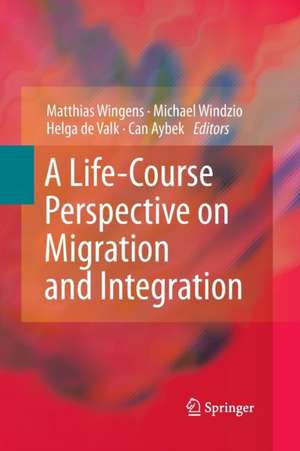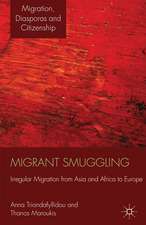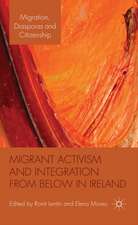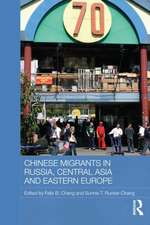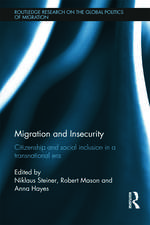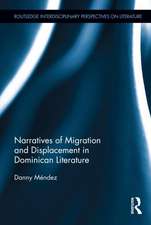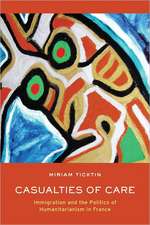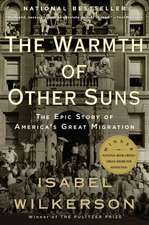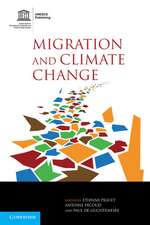A Life-Course Perspective on Migration and Integration
Editat de Matthias Wingens, Michael Windzio, Helga de Valk, Can Aybeken Limba Engleză Paperback – 30 noi 2014
A range of studies are presented that all apply sociological life course concepts to research on migrants and migrant groups in Europe. The book is organized thematically, indicating different important domains in the life course. Using a wide variety of methodological approaches, it covers both quantitative studies based on population census data and survey material as well as qualitative studies based on interviews. Attention is paid to the life courses of those who migrated themselves as well as their offspring. The studies cover different European countries, relating to one national context or a particular local setting in a city as well as cross-country comparisons. Overall the book shows that applying the sociological life course approach to migration and integration research may advance our understanding of immigrant settlement patterns as well as further develop the life course perspective
| Toate formatele și edițiile | Preț | Express |
|---|---|---|
| Paperback (1) | 640.71 lei 6-8 săpt. | |
| SPRINGER NETHERLANDS – 30 noi 2014 | 640.71 lei 6-8 săpt. | |
| Hardback (1) | 647.08 lei 6-8 săpt. | |
| SPRINGER NETHERLANDS – 14 iul 2011 | 647.08 lei 6-8 săpt. |
Preț: 640.71 lei
Preț vechi: 753.77 lei
-15% Nou
Puncte Express: 961
Preț estimativ în valută:
122.60€ • 133.59$ • 103.31£
122.60€ • 133.59$ • 103.31£
Carte tipărită la comandă
Livrare economică 23 aprilie-07 mai
Preluare comenzi: 021 569.72.76
Specificații
ISBN-13: 9789400794825
ISBN-10: 9400794827
Pagini: 304
Ilustrații: VI, 297 p.
Dimensiuni: 155 x 235 x 16 mm
Greutate: 0.43 kg
Ediția:2011
Editura: SPRINGER NETHERLANDS
Colecția Springer
Locul publicării:Dordrecht, Netherlands
ISBN-10: 9400794827
Pagini: 304
Ilustrații: VI, 297 p.
Dimensiuni: 155 x 235 x 16 mm
Greutate: 0.43 kg
Ediția:2011
Editura: SPRINGER NETHERLANDS
Colecția Springer
Locul publicării:Dordrecht, Netherlands
Public țintă
ResearchCuprins
1. Matthias Wingens / Helga de Valk / Michael Windzio / Can Aybek:The sociological life course approach and research on migration and integration.- 2. Janina Söhn: Immigrants’ educational attainment: a closer look at the age-at-migration effect.- 3. Can Aybek: Varying hurdles for low-skilled youth on the way to the labour market.- 4. Irena Kogan / Frank Kalter / Elisabeth Liebau / Yinon Cohen: Individual resources and structural constraints in immigrants’ labour market integration.- 5. Karin Schittenhelm:Overcoming barriers. Career trajectories of highly skilled members of the German second generation.- 6. Rossalina Latcheva / Barbara Herzog-Punzenberger: Integration trajectories – a mixed method approach.- 7. Ingrid Tucci:National context and logic of social distancing: children of immigrants in France and Germany.- 8. Helga de Valk: Paths to adulthood: A focus on the children of immigrants in the Netherlands.- 9. Michael Windzio: Linked life-events. Leaving parental home in Turkish immigrant and native families in Germany.- 10. Raya Muttarak: Occupational mobility in the life course of intermarried ethnic minorities.- 11. Andreas Farwick:The effect of ethnic segregation on the process of assimilation.- 12. Reinhard Schunck: Immigrant integration, transnational activities and the life course.- 13. Helga de Valk / Michael Windzio / Matthias Wingens / Can Aybek:Immigrant settlement and the life course: an exchange of research perspectives and outlook for the future.
Recenzii
From the reviews:
“‘A Life-Course Perspective on Migration and Integration’ is an edited volume that compiles a number of articles on immigrants’ integration. … Unlike many edited books, this volume has a clear theoretical message and a visible red thread. … the volume does a good job in showing that the life course approach is something between a helpful reminder of the theoretical principles that should guide empirical integration research and a magic bullet for those interested in the topic.” (Claudia Diehl, European Journal of Population, Vol. 28, 2012)
“‘A Life-Course Perspective on Migration and Integration’ is an edited volume that compiles a number of articles on immigrants’ integration. … Unlike many edited books, this volume has a clear theoretical message and a visible red thread. … the volume does a good job in showing that the life course approach is something between a helpful reminder of the theoretical principles that should guide empirical integration research and a magic bullet for those interested in the topic.” (Claudia Diehl, European Journal of Population, Vol. 28, 2012)
Textul de pe ultima copertă
Over the last four decades the sociological life course approach with its focus on the interplay of structure and agency over time life course perspective has become an important research perspective in the social sciences. Yet, while it has successfully been applied to almost all fields of social inquiry it is much less used in research studying migrant populations and their integration patterns. This is puzzling since understanding immigrants’ integration requires just the kind of dynamic research approach this approach puts forward: any integration theory actually refers to life course processes. This volume shows fruitful cross-linkages between the two research traditions.
A range of studies are presented that all apply sociological life course concepts to research on migrants and migrant groups in Europe. The book is organized thematically, indicating different important domains in the life course. Using a wide variety of methodological approaches, it covers both quantitative studies based on population census data and survey material as well as qualitative studies based on interviews. Attention is paid to the life courses of those who migrated themselves as well as their offspring. The studies cover different European countries, relating to one national context or a particular local setting in a city as well as cross-country comparisons.
Overall the book shows that applying the sociological life course approach to migration and integration research may advance our understanding of immigrant settlement patterns as well as further develop the life course perspective
A range of studies are presented that all apply sociological life course concepts to research on migrants and migrant groups in Europe. The book is organized thematically, indicating different important domains in the life course. Using a wide variety of methodological approaches, it covers both quantitative studies based on population census data and survey material as well as qualitative studies based on interviews. Attention is paid to the life courses of those who migrated themselves as well as their offspring. The studies cover different European countries, relating to one national context or a particular local setting in a city as well as cross-country comparisons.
Overall the book shows that applying the sociological life course approach to migration and integration research may advance our understanding of immigrant settlement patterns as well as further develop the life course perspective
Caracteristici
Applies the life course approach to migration and integration research Analyses immigrant life course in Europe Mixed methods and contributions from various disciplines
